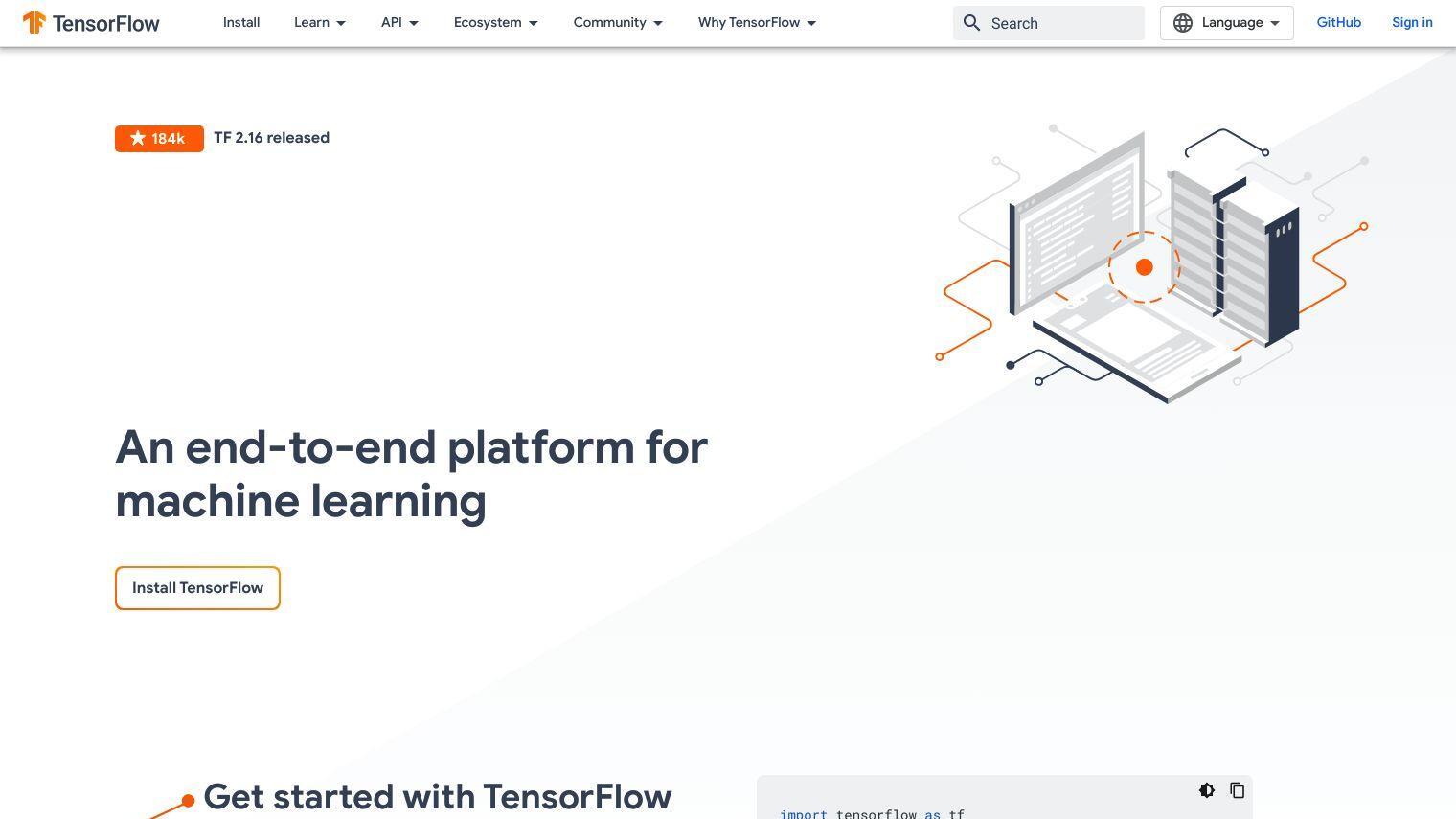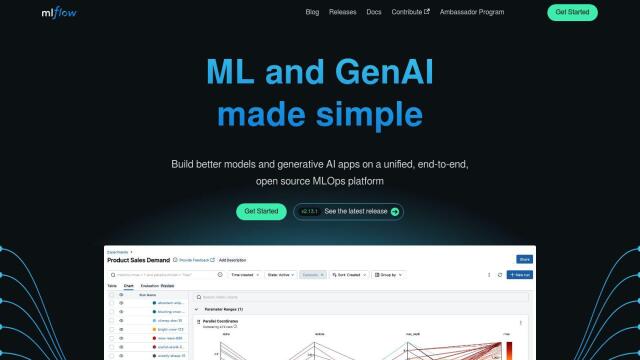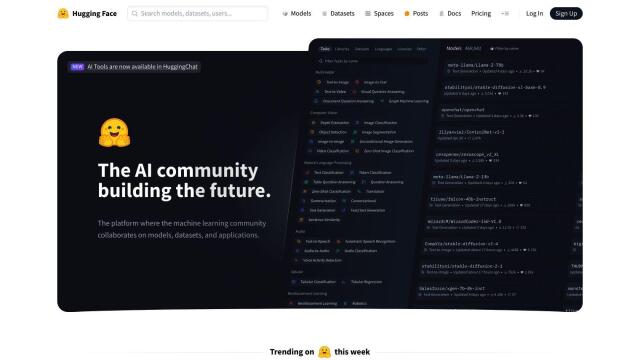TensorFlow is an end-to-end open-source machine learning platform designed for everyone. It provides a flexible ecosystem of tools, libraries, and community resources to help users build and run machine learning models in a variety of environments.
TensorFlow's core strength is making machine learning accessible and efficient. It offers multiple levels of abstraction so you can pick the best approach for your needs. The high-level Keras API offers a simple interface for building and training models, eager execution lets you iterate and debug immediately. For large-scale training jobs, the Distribution Strategy API lets you train models on a variety of hardware configurations.
TensorFlow has a wide range of use cases across many industries. TensorFlow Lite is used for on-device machine learning, for example assessing fetal ultrasound data to help mothers get better health care. It also supports graph neural networks for processing relational data and reinforcement learning for training recommendation systems like the ones Spotify uses.
The platform comes with a variety of tools to speed up modeling, deployment and other workflows. That includes TensorFlow Lite for mobile and edge devices, TensorFlow.js for training and running models in the browser, and TFX for setting up production ML pipelines. You can use pre-trained models and datasets, as well as libraries and extensions for domain-specific use cases.
TensorFlow is for beginners and experts. It's got a variety of resources, including interactive code samples, tutorials and guides, to help you learn and master machine learning concepts. If you're new to machine learning, TensorFlow has introductory materials and curated curriculums to get you started.
TensorFlow is used in many areas, including tech, health care and education. Airbnb, Coca Cola, Deepmind, GE Healthcare, Google, Intel, NERSC and Twitter all use TensorFlow in their operations.
Among the new features in the latest version are improvements to dynamically quantized inference and half-precision inference for better on-device performance. TensorFlow's community is active and open to contributions, with opportunities for collaboration and sharing projects.
TensorFlow can be installed with pip, Docker containers or by building it from source. It runs on a variety of operating systems, including Ubuntu, Windows and macOS, and requires Python 3.8-3.11. There's no pricing information, since TensorFlow is open-source and free to use.
Published on June 23, 2024
Related Questions
Tool Suggestions
Analyzing TensorFlow...







